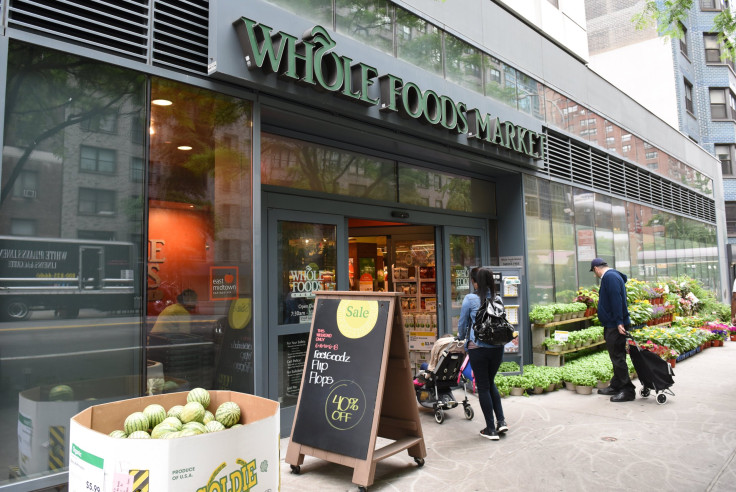Amazon Is Diving Headlong Into The Grocery Business

Amazon.com (NASDAQ:AMZN) fired the shot heard round the grocery world when the tech giant acquired Whole Foods in late 2017 -- putting supermarkets on notice that there was a new sheriff in town. Since then, however, the situation has remained largely unchanged. The company has slowly ramped up its brick-and-mortar presence, adding to its growing list of physical locations with Amazon Go, Amazon Books, and Amazon 4-Star locations -- but its supermarket aspirations appeared to be treading water.
Now it appears the company is finally set to make a bigger push into the grocery business.
Another way to reach customers
Numerous reports have emerged that Amazon is planning to open stores in key locations around the country, the early stages of a plan to move further into the grocery arena. The company plans to setup anchor stores in high-profile cities like Los Angeles, Philadelphia, and Chicago according to a report in The Wall Street Journal. The e-commerce leader has reportedly signed more than a dozen leases in Los Angeles alone, and other locations are planned for San Francisco, Seattle, and Washington, D.C. Some of these stores could be up and running as early as late 2019.
This follows stories earlier this year that Amazon was planning an entirely new grocery chain -- separate and distinct from its Whole Foods business. Many of these new stores would be located in the suburbs, targeting middle-income shoppers. Amazon has long been the destination of high-income consumers, but the company is increasingly focusing on those with lower household incomes.
A small but growing part of Amazon's business
Amazon revealed in 2018 that revenue from its physical stores grew to $17.2 billion, growing to 7.4% of the company's total net sales. At the same time, the company has positively dominated online sales, becoming the world's largest e-commerce provider in the process.
It's no surprise, then, that Amazon would seek to expand its growing empire with a further push into physical retail. In the U.S. alone, the top 250 retailers generated more than $4.5 trillion dollars in revenue -- and Amazon is looking to increase its slice of the pie.
The company recently moved up two places in the top 10, becoming the world's fourth-largest retailer, according to data compiled by Deloitte's "2019 Global Powers of Retailing" report. This puts the e-commerce juggernaut behind just Walmart (NYSE:WMT), Costco (NASDAQ:COST), and Kroger (NYSE:KR). Amazon's retail sales -- which excludes revenue from sources like Prime subscriptions and Amazon Web Services -- topped $118 billion in 2017, closing in on its top three competitors, which reported $500 billion, $129 billion, and $119 billion, respectively.
Turning the tables
Each of Amazon's biggest rivals have made significant inroads into the realm of online grocery sales, using their physical retail stores to leverage their efforts by offering same-day and next-day pickup and delivery services at many locations. This has all been in an effort to stay the threat from their chief digital competitor.
If Amazon is successful in establishing a new network of grocery stores, it will have turned the tables on the competition, giving the company yet another way to expand its growing footprint and further dominate the retail landscape it has inexorably changed.
John Mackey, CEO of Whole Foods Market, an Amazon subsidiary, is a member of The Motley Fool's board of directors. Danny Vena owns shares of Amazon. The Motley Fool owns shares of and recommends Amazon. The Motley Fool has the following options: short January 2020 $180 calls on Costco Wholesale and long January 2020 $115 calls on Costco Wholesale. The Motley Fool recommends Costco Wholesale. The Motley Fool has a disclosure policy.
This article originally appeared in The Motley Fool.



















